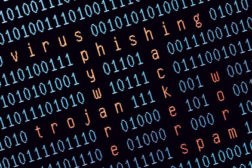Home » cyber crime
Articles Tagged with ''cyber crime''
Security News -- Cyber Security
FBI: Cyber Criminals Target Financial Institutions
September 18, 2012
Outside the Comfort Zone
Get to know Dennis Treece, Director of Corporate Security for the Massachusetts Port Authority. Whom in his organization does he take the time to interact with, and why?
June 1, 2012
Sign-up to receive top management & result-driven techniques in the industry.
Join over 20,000+ industry leaders who receive our premium content.
SIGN UP TODAY!Copyright ©2024. All Rights Reserved BNP Media.
Design, CMS, Hosting & Web Development :: ePublishing





